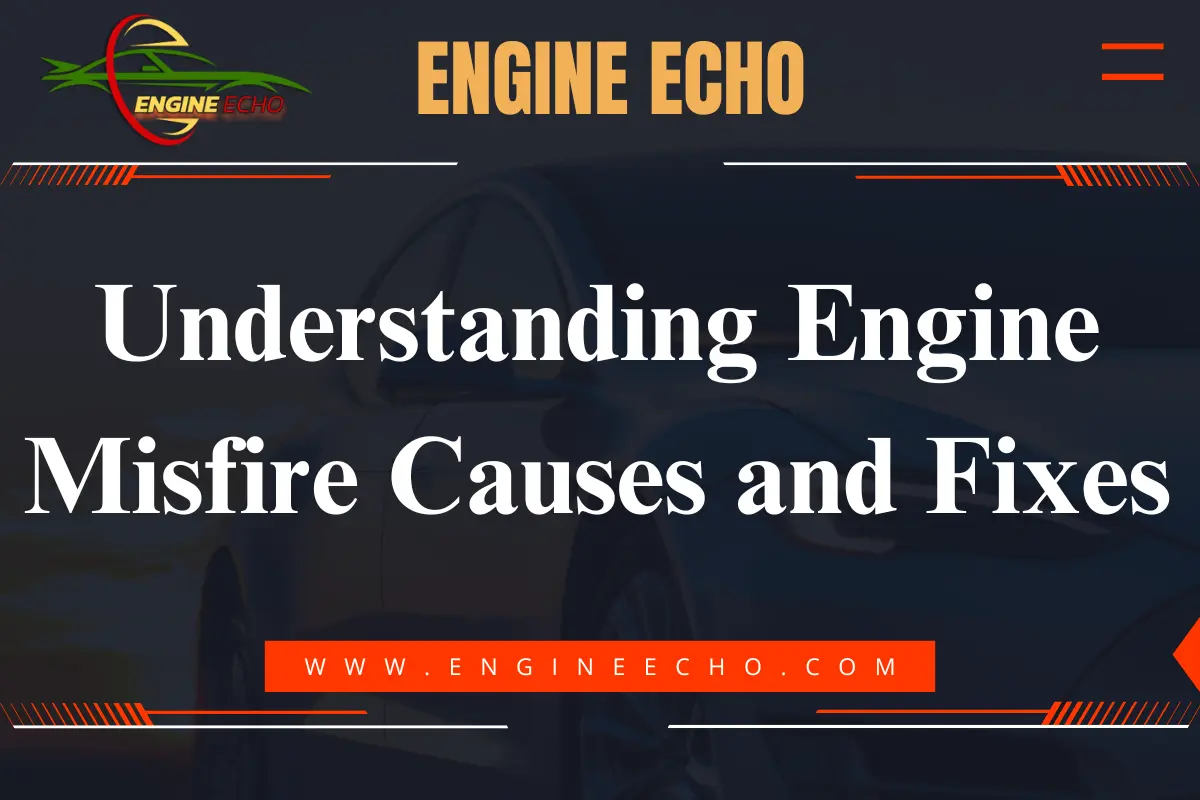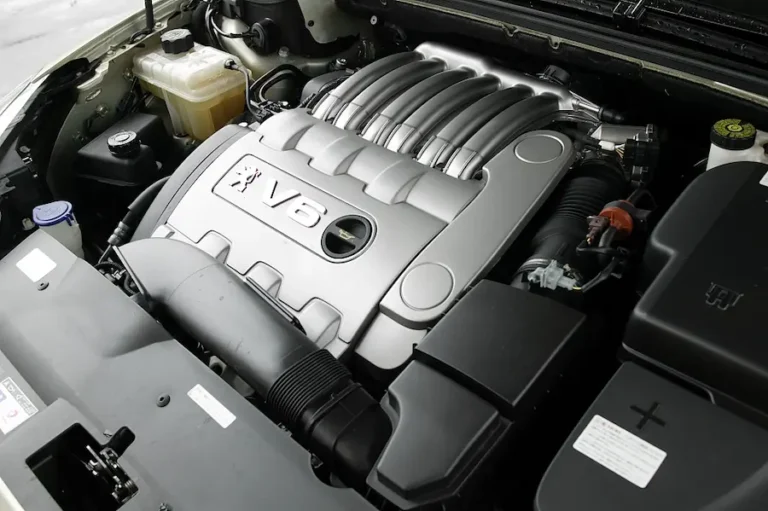Understanding Engine Misfire: Causes and Fixes

Key Takeaways:
- Engine misfires are often caused by issues in the ignition system, fuel delivery problems, or mechanical failures.
- Detecting early symptoms of misfires, such as rough idling and loss of power, can help prevent further engine damage.
- A misfiring engine negatively impacts fuel efficiency, emissions, and vehicle performance.
- Diagnostic tools like OBD-II scanners and compression tests are crucial for identifying the root cause of an engine misfire.
- Regular maintenance of spark plugs, fuel injectors, and timing components can prevent future misfires.
Introduction
An engine misfire happens when something throws off the combustion in one or more cylinders. It might just feel like a small hiccup at first, but believe me, if you ignore it, that little hiccup can turn into a big repair bill fast. From my experience, most misfires happen because of simple things that can be fixed if caught early, like worn spark plugs or clogged fuel injectors. In this article, I’ll break down what causes engine misfires, how to diagnose them, and what you can do to fix and prevent them. Knowing this can save you from unnecessary stress, time, and money.
1. What Is an Engine Misfire?
Your engine needs the right mix of fuel, air, and spark to keep things running smoothly. If one of those is off, even just a little, the cylinder won’t fire properly, and you’ve got yourself a misfire.
Types of Misfires:
- Single-cylinder misfire: Only one cylinder fails to ignite properly, which can feel like a minor jolt.
- Multi-cylinder misfire: Multiple cylinders misfire, causing a more noticeable drop in performance.
- Intermittent misfire: These are tricky because they happen randomly, making it harder to diagnose and often leading to bigger problems down the line.
2. Symptoms of an Engine Misfire
Engine misfires have a few telltale signs, and if you’ve ever driven a vehicle that felt off or sluggish, chances are you were dealing with a misfire. I remember a time when I thought my car was just “getting old”—turns out it was a simple misfire, which I could have fixed if I had caught it sooner.
Signs to Look Out For:
- Engine hesitation: This is that sluggish feeling when you accelerate, as if the car doesn’t have the energy to move forward.
- Rough idling: Ever had your car shake or vibrate more than usual when at a stop? That’s likely a misfire.
- Decreased power: If your car feels like it’s having a hard time keeping up, there’s a good chance a misfire is to blame.
Dashboard Indicators:
- Check engine light: This light doesn’t always mean doom and gloom, but it’s often the first sign that a misfire is happening.
- OBD-II error codes: Codes like P0300 (random misfire) and P0301-P0308 (cylinder-specific misfires) can point you straight to the issue.
3. Common Causes of Engine Misfire
From what I’ve seen, engine misfires usually come down to a few common problems. It’s often something in the ignition system or fuel delivery. The upside? Most of these issues are simple to fix—if you catch them in time.
Ignition-Related Issues:
- Faulty spark plugs: Worn-out spark plugs are a common culprit. I’ve learned the hard way that ignoring them can quickly lead to bigger problems.
- Ignition coil problems: A weak or damaged ignition coil can lead to inconsistent spark, causing a misfire.
- Distributor cap and rotor malfunction: If you drive an older car, these parts could be at fault. They wear out over time and affect how the spark is distributed.
Fuel System Problems:
- Clogged fuel injectors: When injectors get dirty, they don’t deliver enough fuel to the cylinders. Once, I had a persistent misfire that was traced back to nothing more than a gummed-up injector.
- Fuel pump issues: A failing fuel pump won’t provide enough pressure, leading to incomplete combustion.
- Incorrect air-fuel ratio: The mix of fuel and air needs to be just right for combustion. Too much or too little fuel will cause a misfire.
Mechanical Failures:
- Worn-out piston rings: Low compression due to worn piston rings can cause misfires and lead to serious engine wear.
- Valve damage: A bent or broken valve can prevent the proper flow of fuel and air, causing misfires.
- Timing chain/belt problems: If your timing belt or chain is off, your engine’s valves and pistons won’t sync up, leading to misfires.
4. Diagnosing Engine Misfire
Getting to the bottom of a misfire isn’t always straightforward, but with a few tools and some know-how, you can often pinpoint the issue. I’ve spent countless hours under the hood, troubleshooting misfires, and here’s what I’ve found works best.
Using OBD-II Scanner:
A quick OBD-II scan can save you a ton of time. Whenever I get a check engine light, the first thing I do is hook up my scanner. Misfire codes like P0300 (random misfire) and P0301-P0308 (specific cylinders) will direct you to the problem.
Visual Inspection of Engine Components:
Sometimes, you can spot the problem right away—worn spark plugs, frayed wires, or leaky fuel lines can give the game away. Take your time inspecting the engine components.
Compression Testing:
A compression test checks the health of your engine’s cylinders. If one or more cylinders have low compression, you’re likely dealing with a mechanical failure that needs fixing sooner rather than later.
5. Ignition System and Misfires
The ignition system is one of the most common sources of misfires, and in my experience, the solutions are often simpler than you think. Keeping an eye on spark plugs and ignition coils can save you a lot of headaches.
Spark Plug Issues:
Worn spark plugs are a frequent culprit. It might seem like a small thing, but I’ve seen how quickly a $5 spark plug can turn into a $500 problem. Inspect and replace them regularly to avoid misfires.
Ignition Coil Failure:
A weak ignition coil can lead to inconsistent sparking. Once, a faulty coil in my vehicle caused misfires that left me scratching my head until I realized the problem was simpler than expected. Replacing the coil solved it.
6. Fuel System-Related Misfires
Fuel-related misfires can be trickier to pin down, but trust me, you don’t want to ignore them.
Fuel Injector Problems:
Clogged or faulty fuel injectors can lead to an uneven fuel flow. I’ve used fuel injector cleaner regularly after an issue with clogged injectors kept my car from running at its best. Sometimes, a good cleaning is all it takes.
Fuel Pump Issues:
When a fuel pump starts failing, the engine can’t get enough fuel to maintain proper combustion. If your car stutters or hesitates, the fuel pump might be on its way out.
7. Mechanical Causes of Misfire
Sometimes, misfires can be linked to mechanical issues, which are more serious but also preventable with proper maintenance. I’ve found that staying on top of timing belt inspections can prevent major headaches down the road.
Engine Timing Problems:
If your timing belt or chain isn’t doing its job, your engine won’t function properly, leading to misfires. When I had to replace a timing chain, it wasn’t fun, but catching it early saved me from needing a complete engine rebuild.
Worn Valves and Pistons:
Worn or damaged valves and pistons will lead to poor compression, causing misfires and a big drop in performance. Hear a knocking sound? Don’t wait—get those parts checked right away.
8. Environmental Factors Contributing to Misfire
Misfires aren’t always due to a mechanical problem—sometimes, it’s environmental factors or even bad fuel quality that causes the issue.
Weather-Related Issues:
Cold starts and wet weather can sometimes cause misfires. I’ve noticed that in the winter, especially, engines are more prone to struggle, particularly if sensors aren’t calibrated properly for the temperature.
Fuel Quality:
One time, I unknowingly filled up with low-grade fuel and noticed my engine misfiring soon after. Always stick to high-quality fuel and keep your engine running as efficiently as possible.
9. Fixing an Engine Misfire
Fixing a misfire depends on the cause, but most of the time, it’s something you can handle yourself. Here’s what I recommend:
Replacing Spark Plugs and Wires:
If you haven’t swapped out your spark plugs in a while, that’s a great place to start. It’s a quick and easy fix that can make a world of difference.
Cleaning Fuel Injectors:
If your injectors are dirty, grab some cleaner and run it through the system. If that doesn’t help, consider getting the injectors professionally cleaned or replaced.
Repairing Timing Chain or Belt Issues:
Timing chain or belt issues are trickier and often need a professional mechanic, but replacing them on time is critical to avoiding major engine damage.
10. Preventing Engine Misfires
After years of working on cars, one thing I’ve learned is that prevention is always better than cure. Regular maintenance is the key to keeping your engine happy.
Regular Maintenance Tips:
- Check and replace spark plugs before they wear out.
- Use high-quality fuel to keep your injectors clean and your engine running smoothly.
- Pay attention to small changes in performance—they often signal bigger problems down the line.
Timing Component Inspections:
Inspect your timing belt or chain at recommended intervals and replace them when necessary. Don’t wait until it breaks—that’s a surefire way to cause a misfire (and a massive repair bill).
Fuel System Care:
Use fuel additives to help clean injectors and improve combustion. It’s a small investment for better engine health.
11. Case Studies of Engine Misfires
Case Study 1: Ignition System Failure in a Sedan
I once had a 2015 Honda Accord with persistent misfires due to a failing ignition coil. A quick swap of the coil and spark plugs resolved the problem, and the car ran like new again.
Case Study 2: Fuel Injector Blockage in a Pickup Truck
A 2012 Ford F-150 I was working on had rough idling due to clogged injectors. After trying an injector cleaner without much success, I had the injectors professionally cleaned, which solved the issue.
Case Study 3: Timing Chain Failure in a High-Mileage Vehicle
A high-mileage 2008 Toyota Camry was misfiring due to a worn timing chain. Replacing the chain solved the issue and restored the vehicle’s performance.
Conclusion
Whether it’s bad spark plugs or clogged fuel injectors, most misfires have a simple fix. In my experience, keeping up with regular checks and using quality parts is what really makes the difference. Don’t let a small issue turn into a costly repair—stay on top of your engine’s health.
Frequently Asked Questions (FAQs)
1. What are the most common causes of engine misfire?
Common causes include faulty spark plugs, clogged fuel injectors, ignition coil failure, and timing belt issues.
2. Can driving with a misfiring engine damage my car?
Yes, driving with a misfiring engine can lead to further damage, including harm to the catalytic converter and increased engine wear.
3. How much does it cost to fix an engine misfire?
The cost depends on the cause. Replacing spark plugs may cost $100–$200, while timing belt repairs can range from $500 to $1,000 or more.
4. Can a misfire resolve itself over time?
No, a misfire will not resolve on its own. It requires diagnosis and repair to prevent further damage.
5. What happens if I ignore an engine misfire?
Ignoring a misfire can lead to serious engine damage, reduced fuel efficiency, increased emissions, and costly repairs.
Thanks for checking out this article on EngineEcho.com! Hope you found this article: "Understanding Engine Misfire: Causes and Fixes" helpful! If you liked it and want to dive into more car engine topics, head over to our homepage. There's always something new to discover in the world of engines. Enjoy your reading journey!
Check out our previous article: What Is an Engine Misfire?






